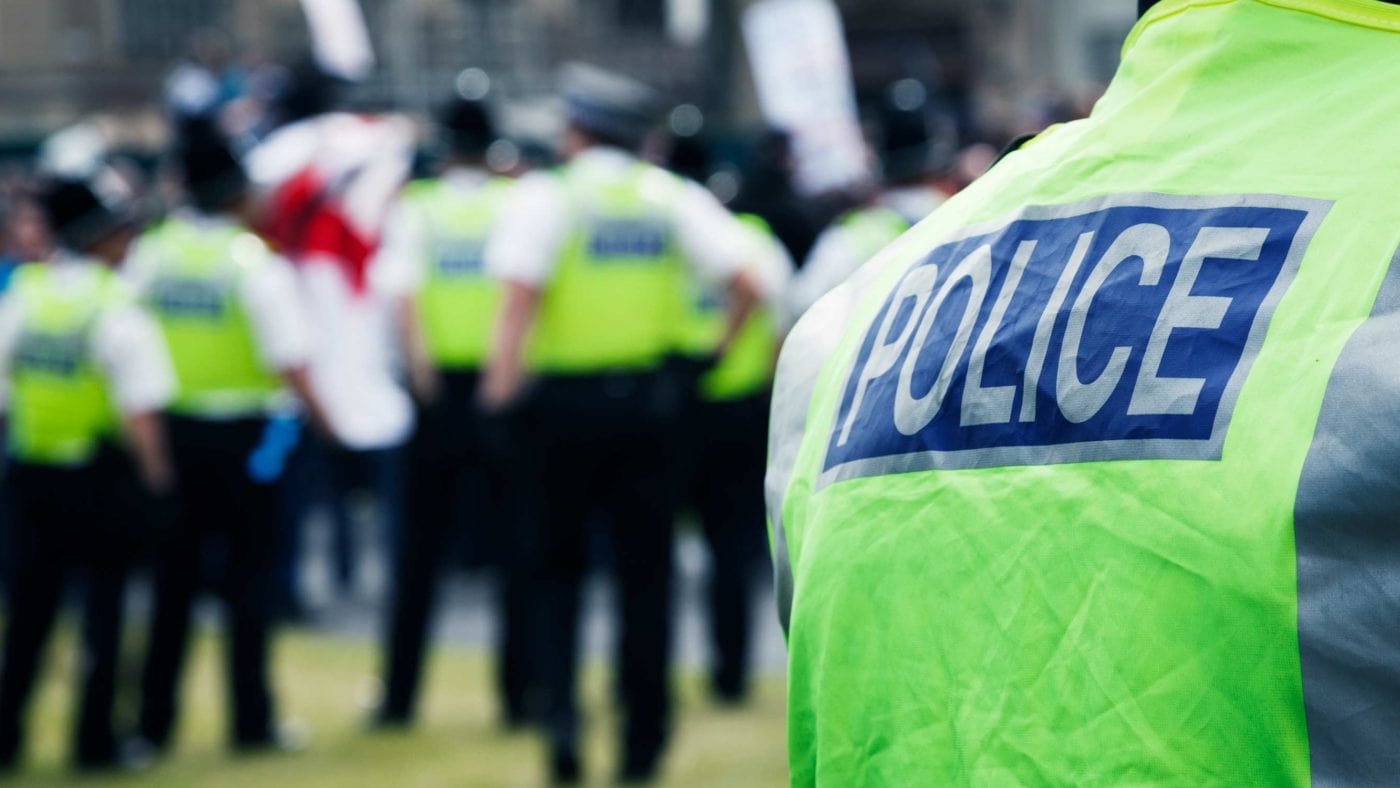After negative headlines about police officers prancing around at Pride parades, or wearing high heels for domestic violence campaigns, there have been some welcome interventions.
Crucially, the new Home Secretary Suella Braverman called for officers to not make ‘symbolic gestures’ at the expense of ‘common sense policing’. She is saying in effect, stop taking the knee, go and catch some criminals. The new Met Commissioner, Sir Mark Rowley, made a similar point in a recent interview with LBC. He said his force ‘shouldn’t show allegiance to any political cause’ and committed to improving police responses to crimes like burglary.
Rowley seems a decent man with the right instincts, yet is half in and half when it comes to identity politics. On the one hand, he has reportedly refused to meet with the head of the National Black Police Association (NBPA), Andy George – presumably because his organisation espouses the kind of contentious political views he wants to steer clear of. However, he has met repeatedly with other similar groups. Equally his pledge to be ‘ruthless’ in the pursuit of ‘racist and misogynist’ officers sounds unobjectionable, but does raise concerns over how those infractions are defined – will it entail a witch hunt for any officer who ever said something stupid on WhatsApp, irrespective of their performance on the job?
Indeed, much of the corrosive influence on the police comes from those who are supposed to root out various ‘isms’ and ‘phobias’. My recent report ‘We Need To Check Your Thinking’, co-authored with Hardeep Singh, details a well-embedded infrastructure of political activists within the police. Independent Advisory Groups (IAGs) were set up after the Macpherson Report and were supposed to be composed of trusted community figures providing scrutiny of the police. In practice, they have meant giving undue influence to identitarian activists, often ‘LGBT+’, who try to steer the police towards prioritising ‘hate crime’.
No, tackling hate crime might seem a reasonable objective, but should it really be a top priority, when most such offences are non-violent and often amount to name-calling or unpleasant social exchanges? Ironically, given the IAGs are supposed to promote transparency, various forces refused our Freedom of Information requests for details of the groups’ membership and minutes of their meetings.
There are also ‘LGBT liaison officers’, whose purpose seems to include setting up links between the police and activist organisations. Couple this with the outsourcing of police policy to Stonewall, which has written guidelines for the police on transgenderism. This entails new social rules to which the public has not consented. Our research found the police have paid Stonewall almost £500,000 over seven years.
Identitarian groups are bad influences in that they encourage the police to engage in all the ridiculous pageantry that has proved so aggravating to members of the public. These groups hold sway over the police, through making claims of ‘institutional’ racism, transphobia or misogyny. Yet they never offer evidence for their case beyond a few bad apples, resorting to claims based on lop-sided statistics. Such arguments fail in that they compare, say, the numbers of black people stopped and searched to their overall population, rather than the number of people available to be stopped and searched. When this is done, there is no meaningful disproportionality.
One of the more surprising figures to push back against identity politics is Andy Marsh, the head of the College of Policing. He has said ‘frivolous attempts at inclusion are counterproductive’; that the ‘police should not be involving themselves in spats on Twitter’. Just as Claude Rains was ‘shocked’ to find gambling was going on in Casablanca, so the College of Policing feigns surprise at wokery in its ranks. Remember that it’s the College itself that came up with the ‘non-crime hate incident’. Its own ‘race action plan’ commits the police to ‘develop a more effective response to hate crime committed against black people, including online and on social media’. The plan ushers in political activists whose main objective seems not to be fighting discrimination, but damning that the police as ‘institutionally racist’. Its independent scrutiny oversight board, led by the barrister Abimbola Johnson, will function as a channel for the views of its ‘diversity and inclusion forum’, in which ‘effectively the membership will be whomever wants to join’.
Is the tide turning away from indulging these kind of highly political activists?
There are some encouraging signs, but it’s clear that more needs to be done. Sir Mark and his fellow commissioners need to be wary of the vested interests that escape scrutiny and can readily revert to business as usual once the pressure is off. The first step would be a repudiation of the Macpherson Report and turfing out the activists. Here, Sir Mark’s hands are tied somewhat by his mission – set by former Home Secretary Priti Patel and the Mayor of London , Sadiq Khan – and the strength of opprobrium that accompanies identity politics. He has to be seen to move on these things. For too long, Conservative politicians gave the police no protection from political claims of institutional failings that were so difficult to disprove. But with Braverman’s backing, perhaps Sir Mark might prove up to the task. Let us hope so.
Click here to subscribe to our daily briefing – the best pieces from CapX and across the web.
CapX depends on the generosity of its readers. If you value what we do, please consider making a donation.


